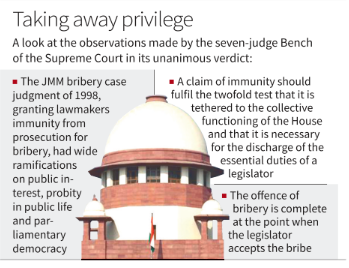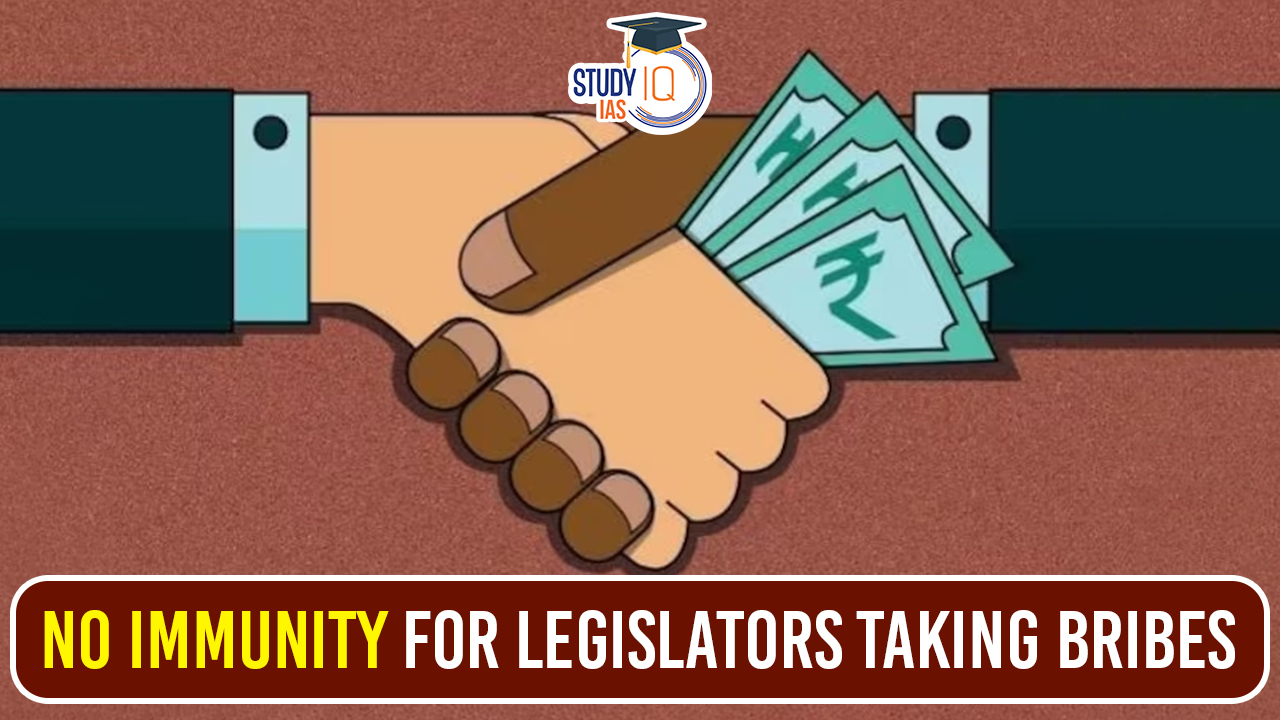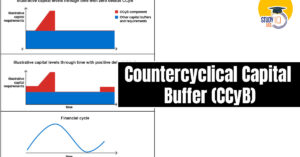Table of Contents
Context: A seven-judge Constitution Bench of the Supreme Court of India made a landmark ruling regarding the immunity of lawmakers facing bribery charges related to their speech and votes in Parliament.
Background of No immunity for Legislators taking Bribes
- Appeal Background: The context involves an appeal by JMM leader Sita Soren, related to the 2012 Rajya Sabha elections.
- Accusations: Sita Soren faced allegations of accepting a bribe to vote for a specific candidate during the elections.
- Defense and Denial: Despite initial accusations, Sita Soren refuted her involvement, claiming she voted for her party’s official nominee.
- Legal Developments: The Central Bureau of Investigation (CBI) proceeded to file a chargesheet against her.
- Judicial Decisions: The Jharkhand High Court declined to dismiss the chargesheet filed against Sita Soren.
- Supreme Court Involvement: Following the High Court’s decision, Sita Soren appealed to the Supreme Court for relief.
Which ‘Articles’ deal with the powers and privileges of MPs and MLAs?
- Articles 105 and 194 of the Constitution: It deals with the powers and privileges of MPs and MLAs in the Parliament and the legislative assemblies.
- The legal shield provided to lawmakers under these articles protects them from prosecution.
- These provisions were put in place to ensure that MPs and MLAs can work without the fear of legal action being taken against them.
- They grant them freedom of speech and protect them from being prosecuted for their remarks in the House or any vote they may participate in.
| 1998 Judgement |
|
We’re now on WhatsApp. Click to Join
Remarks by the Seven-Judge Bench on the 1998 Judgement
- Impact of the 1998 Verdict: The seven-judge bench acknowledged that the 1998 majority verdict carries significant implications for public interest, maintaining probity in public life, and the integrity of parliamentary democracy.

- Concurrent Jurisdiction: The Supreme Court declared that both judicial and parliamentary bodies possess parallel authority to address lawmaker misconduct, underlining the distinct purposes of punitive actions by the House and criminal proceedings.
- Articles 105 and 194 Do Not Shield Bribery: The court clarified that immunity provisions under Articles 105(2) and 194 do not cover acts of bribery.
- Engaging in bribery is identified as a criminal behaviour that does not align with the essential responsibilities of casting a vote or making a decision on a vote, similarly applicable to speeches within the House or its committees.
- Protection Against Corruption: Emphasising the need to prevent creating a class of individuals who are exempt from legal accountability, the court warned against granting broad protections that could encourage unchecked misconduct.
- Potential Damage to Democracy: The verdict stressed that corruption and bribery among legislators pose a serious threat to the foundational principles and the effective functioning of Indian parliamentary democracy.
| Cash For Votes Scandals |
| 2008 Cash-for-Vote Scandal
Context: The controversy revolved around a confidence vote in the Lok Sabha on July 22, 2008, following the withdrawal of support by the CPI(M)-led Left Front over disagreements concerning the Indo-US nuclear deal. 2015 Cash-for-Votes Scandal
|


 Countercyclical Capital Buffer (CCyB): P...
Countercyclical Capital Buffer (CCyB): P...
 STELLAR Model: A Game-Changer in Power S...
STELLAR Model: A Game-Changer in Power S...
 Indus Water Treaty 1960 Suspension Hurts...
Indus Water Treaty 1960 Suspension Hurts...





















